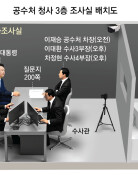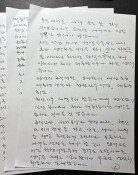'Impeachment economy' of 8 years ago shouldn't be repeated
'Impeachment economy' of 8 years ago shouldn't be repeated
Posted January. 13, 2025 08:14,
Updated January. 13, 2025 08:14
South Korea's currency depreciated the second most among the Group of 30 major economies (G30) after war-torn Russia in December last year as a result of illegal martial law and an impeachment motion. Inflation, which had been stabilizing at around 1 percent for three consecutive months, was also rising, especially in foodstuff, whose raw materials are mostly imported, dampening consumer spending. The possibility of ‘stagflation’ (recession amid rising inflation) is growing as political unrest shakes the exchange rate and the depreciating won spurs price hikes.
At the end of December last year, the Korean currency was 5.3 percent lower against the dollar than the previous month. Even if the dollar's strength is due to the expectation that the U.S. Federal Reserve will reduce the pace of interest rate cuts, only Russia, whose currency fell 6.4 percent, had a bigger decline than South Korea among the G30. Even when compared to China (-0.8 percent) and Mexico (-2.2 percent), which are expected to suffer the most severe economic damage due to Donald Trump's second term, Korea's decline is severe.
The depreciation of the won is having an immediate impact on domestic prices. Prices of salad dressings, including mayonnaise, are set to rise by more than 20 percent on average this week. Confectioners have raised prices by nearly 10 percent to reflect the higher cost of imported raw materials such as chocolate. The price hikes have come amid weakened oversight by the price regulator. There are growing fears of a repeat of the 7.5 percent increase in food prices seen in early 2017, when the impeachment proceedings against President Park Geun-hye were underway. From January to November last year, consumer sentiment is freezing rapidly in the face of high prices. Domestic consumption, including apparel, cars, home appliances, and food, was already down 2.1 percent year-on-year, the worst in 21 years after the 2003 credit card crisis.
As the conflict over the execution of the detention warrant for President Yoon Suk Yeol intensifies, and U.S. President Donald Trump will start his second term next Monday, watchers say the won-dollar exchange rate will rise further and cross the 1,500 won mark. If the exchange rate of 1,500 won, which has been seen only during foreign exchange crises and global financial crises, materializes, the Korean economy will be forced to enter ‘perfect storm’ (a multi-dimensional crisis caused by multiple adverse events). The authorities should never allow political uncertainty to get in the way of the efforts to manage exchange rates and inflation and should do everything at their disposal to prevent the economy from suffering a major shock like the impeachment crisis eight years ago.







